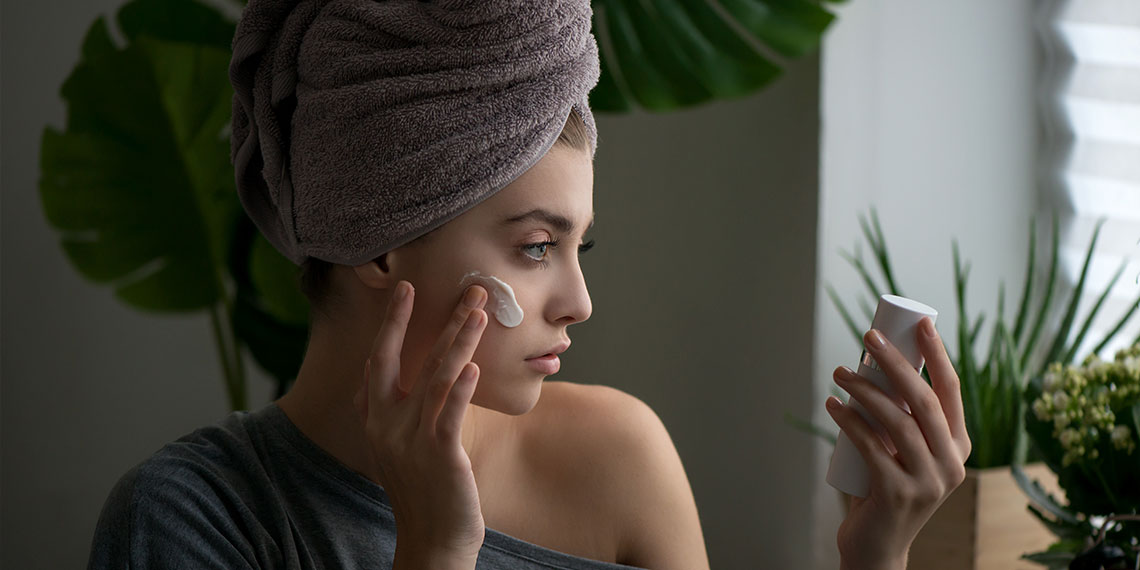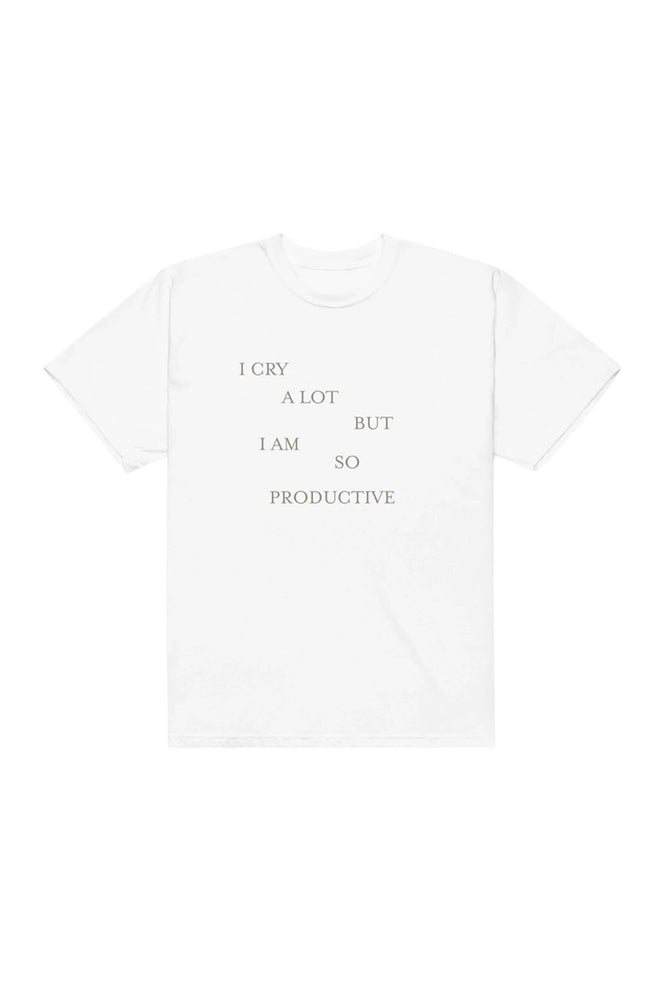If you’re invested in the beauty world like every other woman aged 12 to IDGAF (which is my current age, according to my birth certificate), then you’ve probably established your skin type. But, if you haven’t yet discovered your type, fear not, because it’s never too late (the same goes for finding a relationship, @ my mom). And if you identified your skin type 10 years ago and have been rocking the same skin care routine since then, it might be good to do a little check-up, because beauty tips are constantly changing. Even the hallowed skin types (dry, oily, combination) are not set in stone. Especially when it comes to dry skin, we think we know everything there is to know about treating it: slather on moisturizer on moisturizer, right? Maybe not. Maybe your approach is wrong, because your assessment of your skin is wrong. Often, people will pile on moisturizer and assume doing so will brighten their dull appearance, when in reality, their skin is not dry at all—it’s dehydrated. And although you should still be using moisturizer no matter your skin type or condition, dehydrated skin requires a different solution than just dry skin.
I truly apologize if you are now hurt, confused, and filled with the urge to throw out every moisturizer, hydrating cream, and other miscellaneous skin-care product in your makeup drawer. Don’t freak out, this is all normal. Like I said, our knowledge of skin care is constantly evolving with new information. Like, it wasn’t too long ago when using oil on your face was at the top of the beauty no-no list. Only in the past few years or so has it been receiving high praise from just about every brand that knows the key to dry skin is sebum (aka oil). But even dry skin—which seems obvious—has its own set of myths, like often being confused with dehydrated skin. Knowing what’s what between the two is super important, because it can help you choose products that will yield the best results. So, what are their differences, really? Board-certified dermatologist Dr. Loren Gorcey Franco weighs in, below.
Myth: Dehydrated Skin & Dry Skin are Synonymous
a good thing about having terrible vision is that when i look in the mirror without my glasses on, i can’t see a single pore on my face. it’s flawless. i am the skincare queen.
— bug girl (@BugGirlOfficial) December 13, 2019
We wouldn’t blame you if you assumed that these two beauty words are one and the same. After all, one of the synonyms of “dry” in the dictionary is literally “parched.” So, what gives? According to Dr. Loren Franco, dry skin refers to a skin type that’s lacking oil, while dehydrated skin refers to a condition wherein someone is lacking water. She explains, “Dry skin is characterized by having overall less oil compared to normal or oily skin. It often feels itchy and flaky. In contrast, dehydrated skin doesn’t have enough water. Dehydrated skin will often have a dull appearance, feel tight, and exaggerate any wrinkles you already have.” She adds, “You can actually have oily skin that is dehydrated.” If you needed another friendly reminder to drink water, go do it now—you know, for beauty.
Fact: Dehydrated Skin Is Caused By External Factors
D O N T
F O R G E T
T O
D R I N K
W A T E R
Y O U
S T U P I D
B I T C H
— reminding you to drink water (@drinkwaterho) November 30, 2019
Since people genetically have dry skin (hello, that’s me!), meaning they have less oil-producing glands and overall less oil in their skin, they can’t change that. Sad! However, you can change a condition like dehydrated skin, which is most commonly caused by weather, environment, and diet. Yes, that means humidity and coffee are not your skin’s friend! Ya hate to hear it.
Myth: Dehydrated Skin & Dry Skin Are Treated Exactly The Same Way
a girl becomes a woman the night she starts sticking to her skincare routine regardless of how drunk she is
— Sweatpants Cher 🔶 (@House_Feminist) December 15, 2019
Now that you know the key difference, it’s time to brush up on what your skin needs to feel like its best self. Dry skin needs facial oils, which means you can totally use an oil-based moisturizer and cleanser to nourish your skin back to health. Treating dehydrated skin, on the other hand, is a little more complex. Franco breaks it down for us: “Besides using a moisturizer, exfoliating once a week can help get rid of extra dead skin and allow your moisturizer to penetrate and work better. Try using a moisturizer or serum with hyaluronic acid, a molecule that you naturally make and is key in keeping your skin well hydrated.” Basically, if you have dehydrated skin, your routine may be a little more complex than if it’s simply dry. Dr. Franco adds, “At night, especially in the winter when the heat is on, our skin tends to dry out. Try using a heavier moisturizing cream at night to counteract this. If you are acne-prone, make sure it is oil-free or non-comedogenic.” On the bright side, if you have dehydrated skin, now you have an excuse to blow an entire paycheck at Sephora on all this stuff.
Fact: Both Dehydrated Skin & Dry Skin Need to Moisturize
when you’re doing skincare but your skin doesn’t care
— william (@williamcortesjr) December 12, 2019
Everyone needs oil and water to seal in moisture. Hence, everyone—including those with dry and dehydrated skin—need to moisturize. “Drinking water keeps you hydrated, but unfortunately most of the water we drink gets taken up by other organs before it reaches the skin. Keeping yourself hydrated is key, however, it isn’t enough to treat dehydrated skin. The best way to add moisture back to your skin is with a good moisturizer,” Franco explains.
Even though there is a difference between the two, ultimately most dermatologists don’t differentiate between dry and dehydrated skin. Instead, they often just recommend a moisturizer, which really combats both problems. Moral of the story? Drink water and moisturize. But, of course, choose your moisturizer based on your skin type.
Images: Juta / Shutterstock.com; buggirlofficial, drinkwaterho, house_feminist, williamcortesjr / Twitter










































